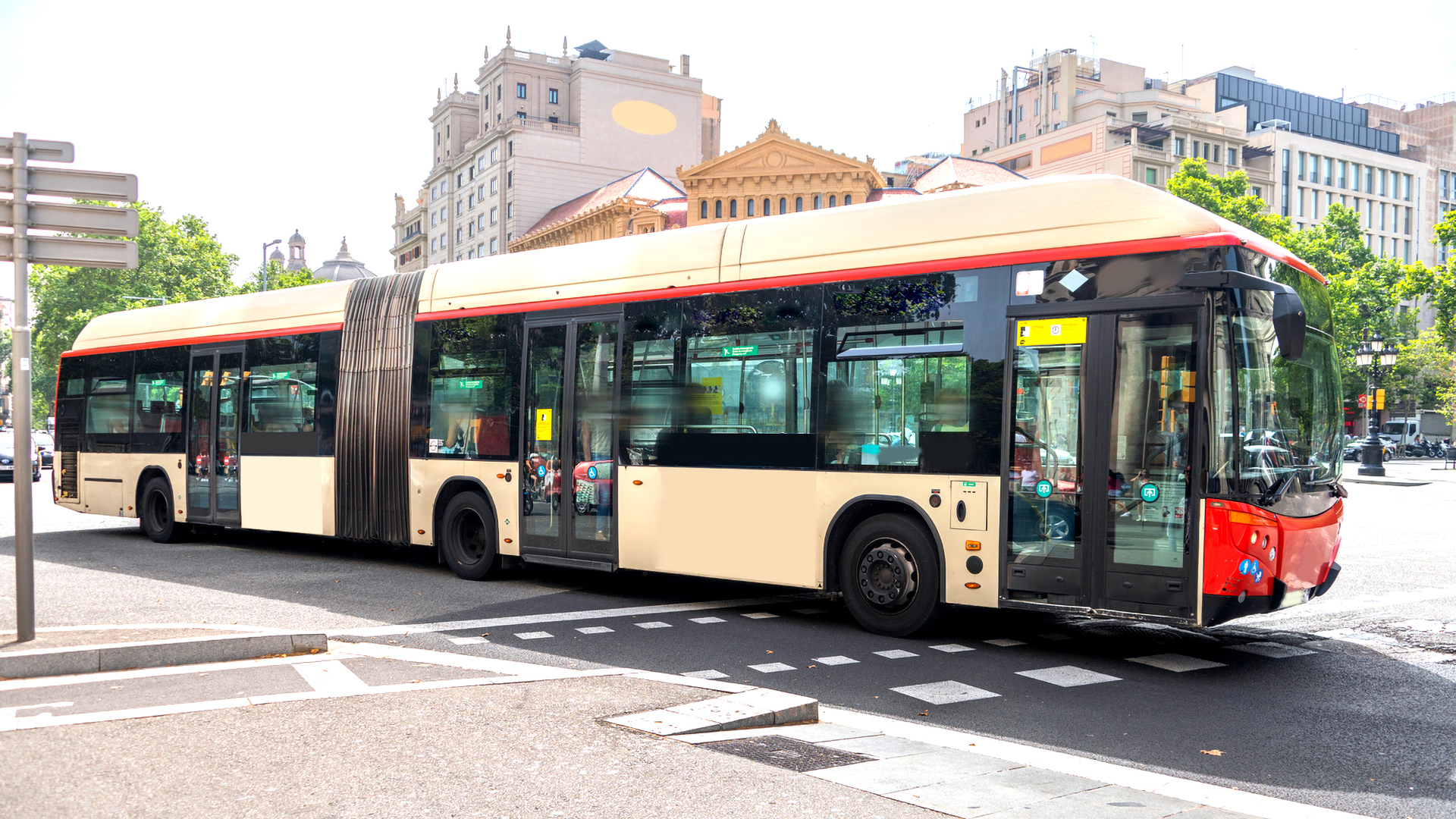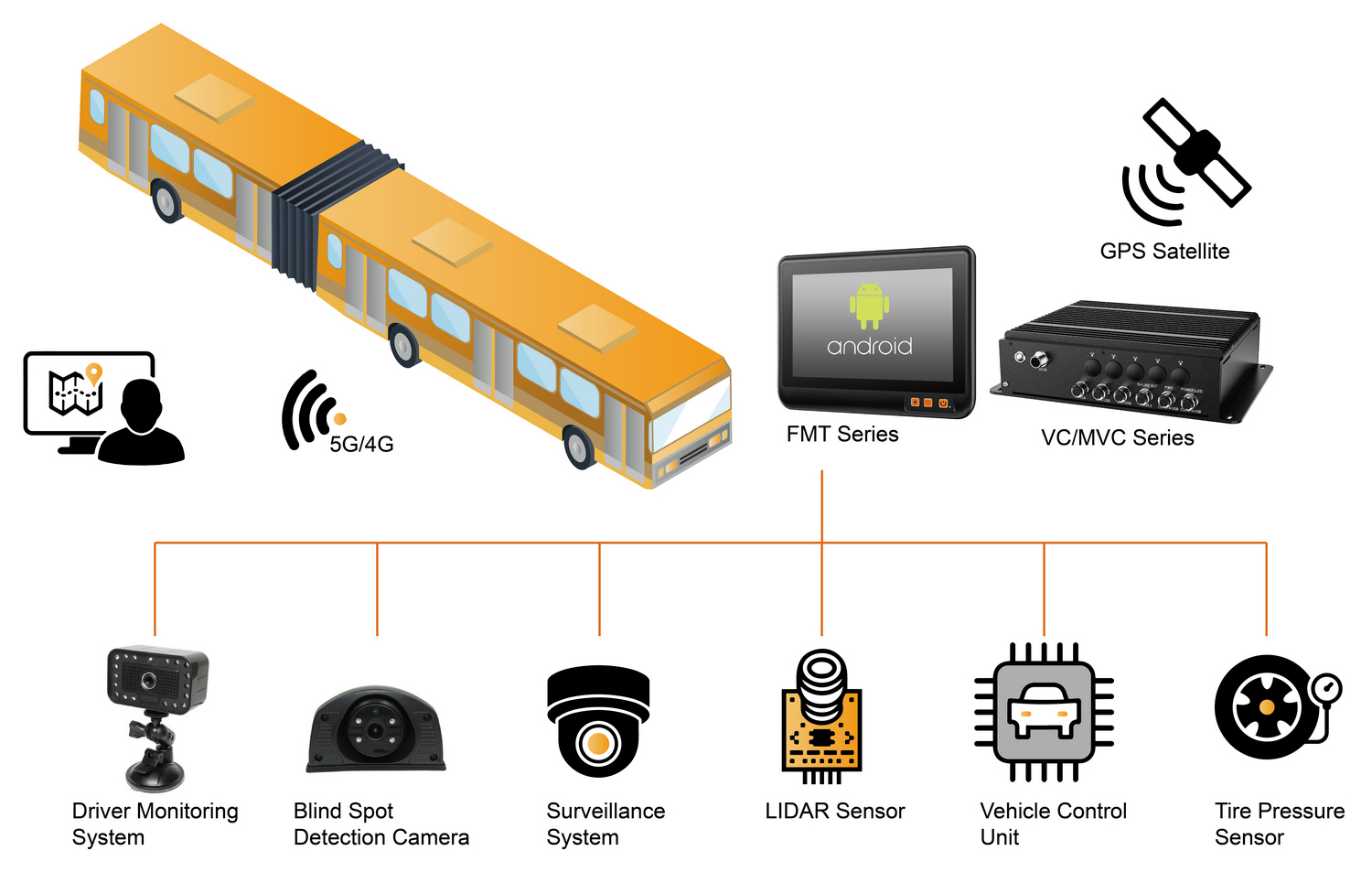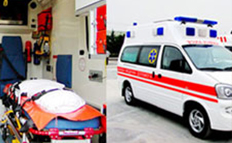Darveen Empowers Intelligent Buses with Integrated Computing Solutions

In many developing cities, rapid urbanization has led to severe traffic congestion, rising pollution, and public transportation systems under strain. Bus Rapid Transit (BRT) systems have emerged as a cost-effective solution to these challenges—offering dedicated bus lanes, coordinated traffic signals, and centralized management, with performance approaching that of metro systems.
To fully realize the benefits of BRT, buses must evolve into intelligent buses equipped with advanced technologies that integrate multiple transportation subsystems. By enabling real-time location tracking, passenger information updates, surveillance, and seamless fleet communication, intelligent buses significantly enhance the overall efficiency, reliability, and responsiveness of the BRT system. All of these capabilities rely on a dependable and in-vehicle computing platform.
Key Applications in Intelligent Buses
A rugged in-vehicle computer allows operators to consolidate critical systems and streamline their smart transportation infrastructure. Below are key intelligent bus applications:
●Fleet Tracking & Dispatch Coordination
✔ Integration with GPS/GNSS modules for real-time route tracking
✔ 4G/5G/Wi-Fi connectivity supports data exchange with central fleet systems
✔ CAN Bus (CAN 2.0B) enables communication with vehicle subsystems like engine control units or door control systems
● Driver Status Monitoring
✔ Video feeds from cabin cameras can be recorded
✔ Control center can monitor video in real time to ensure driver compliance with operational procedures
✔ Optional peripherals such as door status indicators can be connected for basic status tracking
● Passenger Information System (PIS)
✔ Interface with LED or LCD displays to present next-stop notifications, route maps, or service announcements
✔ Onboard voice announcement systems can be triggered by GPS or I/O signals
✔ External signage control is also supported via digital I/O interfaces
● Surveillance and Video Recording
✔ Multiple USB, PoE and COM ports allow for connection to cabin, front, or rear cameras
✔ Local storage can be used for continuous recording or event-triggered video backup
✔ Ethernet ports support high-speed transmission to NVRs or remote monitoring systems
● System Consolidation & Communication
✔ Multiple ITS subsystems run on a single computing unit
✔ Reduces hardware redundancy, simplifies integration, and lowers long-term maintenance cost
✔ CAN 2.0B provides an industry-standard interface for in-vehicle communication and system interoperability
Darveen’s Rugged In-Vehicle Computing Platforms
To support the multi-layered needs of intelligent buses and BRT operations, Darveen offers three rugged vehicle computer product lines tailored to the transport sector’s environmental and operational demands:
FMT Series
An ARM-based vehicle mount computer running on Android OS and Linux, the FMT Series features an 8” to 10” built-in touchscreen display, wide voltage input, and ignition control, making it ideal for driver-side interaction and in-cabin operation. Designed for tasks such as fleet dispatch and mobile data entry, the FMT Series offers simplified deployment with fewer external components.
VC Series
A compact, fanless in-vehicle box computer with Intel® Core™ i3/i5/i7 processors, rich I/O (6 x COM, 6 x USB, dual LAN, digital I/O), CAN 2.0B, and -20°C to 70°C wide temperature support. Ideal for city bus fleets requiring efficient integration of standard ITS subsystems in a space-saving form factor.
MVC Series
A high-performance, rugged in-vehicle box computer designed for harsh transit environments. It features M12 connectors, CAN 2.0B, Power over Ethernet (PoE) support, modular wireless expansion options, and operates in -30°C to 70°C. The PoE allows devices such as IP cameras or passenger information displays to receive both power and data through a single Ethernet cable, simplifying wiring and reducing installation costs.
As cities move toward smarter and greener transportation, Darveen’s FMT, VC and MVC Series enable the essential infrastructure behind intelligent bus systems. With wide-temperature support, extensive I/O, rugged construction, and field-tested reliability, these platforms provide the performance and stability needed for modern public transit applications.





